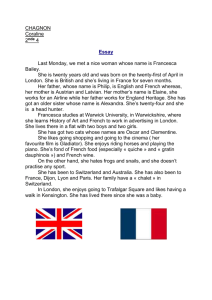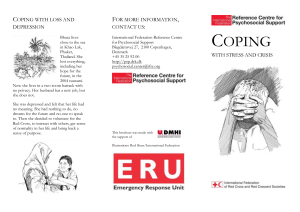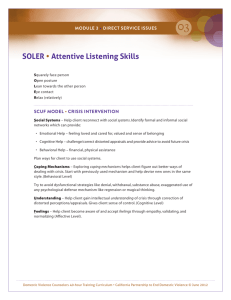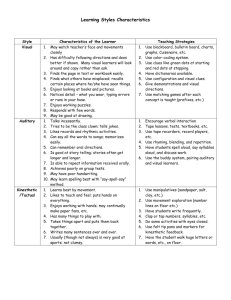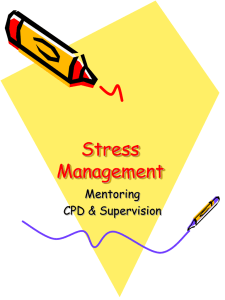Develop a Coping Strategy Based on Who You Are
advertisement
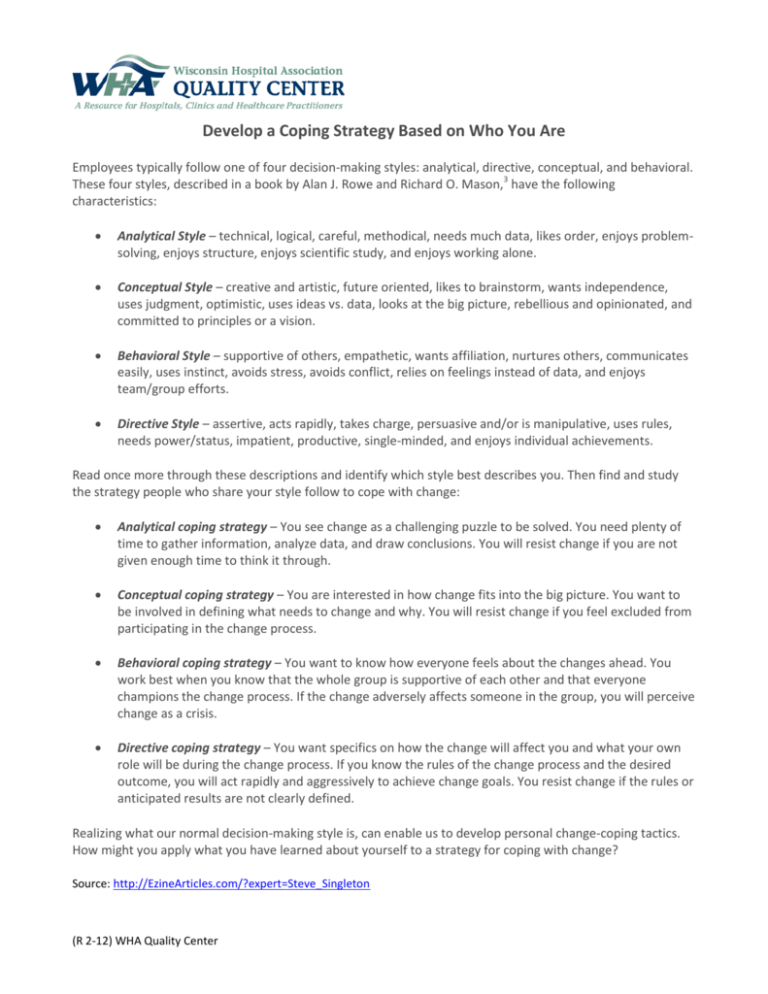
Develop a Coping Strategy Based on Who You Are Employees typically follow one of four decision-making styles: analytical, directive, conceptual, and behavioral. These four styles, described in a book by Alan J. Rowe and Richard O. Mason,3 have the following characteristics: Analytical Style – technical, logical, careful, methodical, needs much data, likes order, enjoys problemsolving, enjoys structure, enjoys scientific study, and enjoys working alone. Conceptual Style – creative and artistic, future oriented, likes to brainstorm, wants independence, uses judgment, optimistic, uses ideas vs. data, looks at the big picture, rebellious and opinionated, and committed to principles or a vision. Behavioral Style – supportive of others, empathetic, wants affiliation, nurtures others, communicates easily, uses instinct, avoids stress, avoids conflict, relies on feelings instead of data, and enjoys team/group efforts. Directive Style – assertive, acts rapidly, takes charge, persuasive and/or is manipulative, uses rules, needs power/status, impatient, productive, single-minded, and enjoys individual achievements. Read once more through these descriptions and identify which style best describes you. Then find and study the strategy people who share your style follow to cope with change: Analytical coping strategy – You see change as a challenging puzzle to be solved. You need plenty of time to gather information, analyze data, and draw conclusions. You will resist change if you are not given enough time to think it through. Conceptual coping strategy – You are interested in how change fits into the big picture. You want to be involved in defining what needs to change and why. You will resist change if you feel excluded from participating in the change process. Behavioral coping strategy – You want to know how everyone feels about the changes ahead. You work best when you know that the whole group is supportive of each other and that everyone champions the change process. If the change adversely affects someone in the group, you will perceive change as a crisis. Directive coping strategy – You want specifics on how the change will affect you and what your own role will be during the change process. If you know the rules of the change process and the desired outcome, you will act rapidly and aggressively to achieve change goals. You resist change if the rules or anticipated results are not clearly defined. Realizing what our normal decision-making style is, can enable us to develop personal change-coping tactics. How might you apply what you have learned about yourself to a strategy for coping with change? Source: http://EzineArticles.com/?expert=Steve_Singleton (R 2-12) WHA Quality Center
